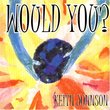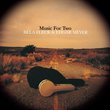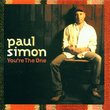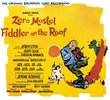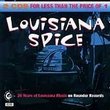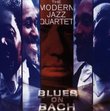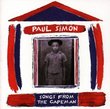| All Artists: Ravi Shankar, Philip Glass Title: Passages Members Wishing: 3 Total Copies: 0 Label: RCA Victor Release Date: 6/26/1990 Genres: International Music, Jazz, Special Interest, New Age, Pop, Classical Styles: Far East & Asia, Reggae, India & Pakistan, India, Jazz Fusion, Experimental Music, Opera & Classical Vocal, Historical Periods, Early Music, Modern, 20th, & 21st Century Number of Discs: 1 SwapaCD Credits: 1 UPCs: 010058207429, 010058207443, 4007192609475 |
Search - Ravi Shankar, Philip Glass :: Passages
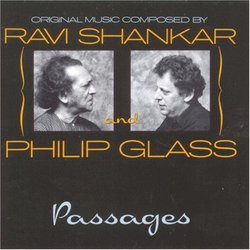 | Ravi Shankar, Philip Glass Passages Genres: International Music, Jazz, Special Interest, New Age, Pop, Classical
No Description Available No Track Information Available Media Type: CD Artist: SHANKAR,RAVI Title: PASSAGES Street Release Date: 08/21/1991 |
Larger Image |
CD DetailsSynopsis
Product Description No Description Available No Track Information Available Media Type: CD Artist: SHANKAR,RAVI Title: PASSAGES Street Release Date: 08/21/1991 Similar CDsSimilarly Requested CDs
|
CD ReviewsEXQUISITE Neal C. Reynolds | Indianapolis, Indiana | 09/10/2002 (5 out of 5 stars) "As a great admirer of Ravi Shankar, I was totally unprepared for the effect of this collaboration. It is indeed exquisite.It starts out quietly with "Offering", then builds with "Sadhanipa". But "Channels and Winds" is, to me, the ultimate, with the voices added to the instruments. This cut is haunting and other-worldly, going beyond the sound of the East or of the western classical tradition into a world or maybe a plane of existence beyond ours. The pieces nicely blend and combine almost seamlessly, and from that ethereal passage, the "Ragas in Minor Scale" take us back to the Eastern tradition. It may be just me, but I felt a kinship with Celtic music during the ragas. The intensity, sometimes a quiet intensity and sometimes an exciting and driving intensity, characterizes the entire CD.This CD should satisfy and possibly enthrall the lover of Shankar's music, but the Philip Glass classicism shapes the Indian sound, and thus we have a music that is all its own.Words certainly can not describe music, and so I urge you to listen to the song samples. Even then, you will have only a hint of the music, because this is music that becomes even more powerful the more often you listen and allow it to envelope you." Journey to the East and back Junglies | Morrisville, NC United States | 03/07/2002 (5 out of 5 stars) "This album at first glance brings together two of the most unlikely composers one could think of in a collaboration that crosses huge cultural differences but works exceptionally well.Ravi Shankar, whose music has been known in the West for many years , is known for his work with Yehudi Menuhin and George Harrison among others. His musical reputation goes far beyond his exemplary sitar playing in the traditional ragas and covers much classical Indian music also.Philip Glass, mostly known for his repetitive structures as a member of the minimalist school and for his powerful soundtracks, has gained a wider audience with classical and popular music afficionados outside of the USA.This album works in many different ways. Despite their differing backgrounds each musician has produced memorable soundscapes which reach deeply into the history of each of the collaborators and their musical heritage and which emerge to enchant and delight the listener. It is often difficult to distinguish the individual contributions from each other in particular pieces which underscores their deep understanding and appreciation of each others work. The pieces are extremely moving and cover a whole gamut of emotions. Each composition has it's own particular feature which causes me to come back to this album again and again.In some ways this album is greater than either of it's component parts and will be a lasting testament to the work of these two great composers." Private Music for Two Very Public Lives Nicholas Croft | New York | 08/17/2003 (5 out of 5 stars) "Philip Glass was introduced to Ravi Shankar during a recording session, in Paris, in the year of 1965. The two were collaborating on a soundtrack for Conrad Rook's film "Chappaqua", Glass as a conductor of the music and Shankar as the composer for the project. During the sessions, each musician had formed a favorable impression of the other, with Ravi the elder, passing on much musical knowledge to the then rather young Glass. After the session was over, the two went their separate ways, not often meeting again.Moving forward into the summer of 1989, Peter Baumann [ founder of Private Music and one time member of the German electronic ensemble Tangerine Dream ] was enthusiastic about a suggestion for reuniting these two composers for a new collaboration to be released on his Private Music label.Philip Glass has long acknowledged an influence of the Tibetan Buddhist musical practices. Buddhism itself is an offshoot of Shankar's native Hindu background, so in very real sense, there is a natural compatibility of spiritual esthetic between these two composers different musical sensibilities, as was also found in that work of 1965.We can hear these mutual musical sympathies on this CD, which contains six new pieces. Two Glass works on musical themes presented by Shankar. Two Shankar works on musical themes presented by Glass and one work by each composer that relies solely on their own respective compositional strategies.The music found on "Passages" offers us a beautiful realization of an ongoing present moment. A place where both tradition and innovation meet to carry us forward towards a new sense of rhythm and musical tranquility. May you find, in the invisible thread which connects the 40+ musicians on this recording, a sense of your own place within the compositions as an audience member at one with the music."
|

 Track Listings (6) - Disc #1
Track Listings (6) - Disc #1
